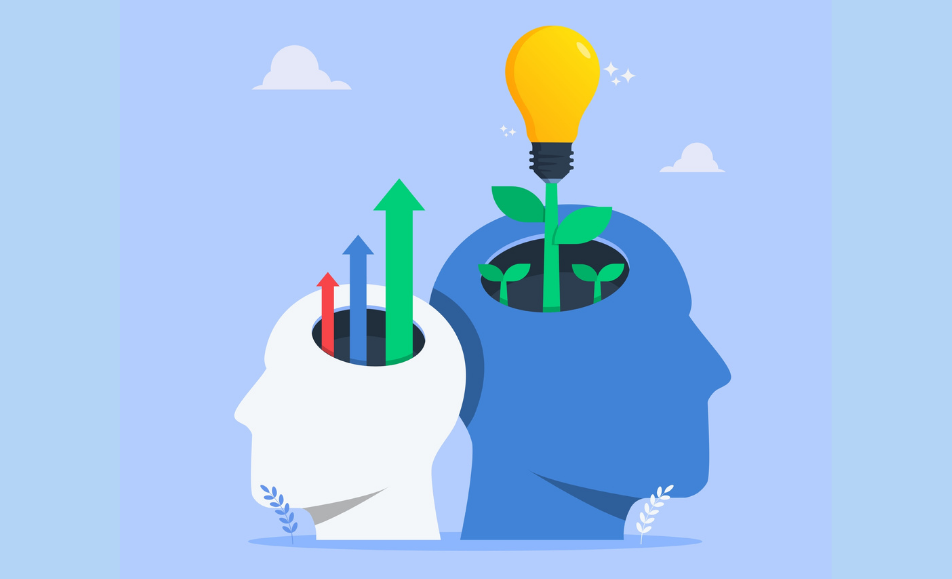
Every day, we find ourselves caught in routines that feel safe yet limiting, often without realizing that playing it safe can hinder a more vibrant, purpose-driven life. Psychological research consistently shows that although our comfort zones offer reassurance, they also stifle innovation and personal growth. In this article, we present four proven strategies to help you break out of your comfort zone and embrace change. By exploring the psychological triggers behind our habits and learning to take calculated risks, you’ll discover actionable, research-backed methods to reshape your future. Get ready to challenge your beliefs and unlock your unlimited potential.
Understanding the Comfort Zone and Its Impacts
The comfort zone is a psychological space where you feel safe, secure, and in control. However, this perceived safety can lead to complacency, preventing the kind of growth that comes from stepping into new challenges. Many psychologists agree that our need for familiarity often creates resistance to change and innovation.
Recent studies in psychology reveal that stepping outside your regular routines activates brain pathways linked to learning and adaptation. This neural re-wiring not only builds confidence but also enhances creativity. When you challenge yourself to embrace new experiences, you trigger your mind’s remarkable ability to evolve and overcome obstacles.
Recognizing how the comfort zone limits your potential is the first crucial step toward transformation. This awareness forces you to re-evaluate your habits, face your fears head-on, and prepare for the changes necessary to achieve personal growth.
Strategy 1: Embrace Uncertainty with Intentional Change
Inviting uncertainty into your life on purpose may appear contradictory, but it is essential for meaningful personal transformation. The secret lies in viewing uncertainty not as a threat, but as a unique opportunity to grow. By breaking free from predictable patterns, you open yourself up to new perspectives and unexplored potential.
Research in positive psychology suggests that embracing uncertainty can markedly boost resilience and adaptability. Rather than avoiding unfamiliar situations, welcoming them can lead to unexpected achievements and valuable learning opportunities. Bold decisions made in uncertain conditions can spark substantial and lasting changes.
By exposing yourself to calculated risks—whether by trying a new hobby, taking on challenging projects at work, or simply changing up your daily routine—you gradually transform discomfort into an empowering drive for personal evolution.

The Psychological Benefits of Uncertainty
Engaging deliberately with uncertain situations helps rewrite your mental scripts. Research shows that this practice can increase your tolerance for ambiguity while enhancing stress management. Adopting a mindset that welcomes uncertainty enables you to face challenges with calm and analytical reasoning.
This shift in perspective turns failures into valuable lessons, fueling both mental and emotional growth. The transformation brought on by embracing uncertainty often leads to increased overall life satisfaction.
Practical Steps to Introduce Uncertainty
Begin with small changes—try a new cuisine, alter your commute, or attend a social event outside your regular circle. These simple experiments gradually build your comfort with the unknown.
Consider keeping a journal to document your experiences. Reflect on how each new encounter reshapes your thoughts and encourages you to embrace broader changes over time.
Strategy 2: Cultivate a Growth Mindset Through Continuous Learning
A growth mindset, the belief that abilities and intelligence can be nurtured through dedication and hard work, is vital for personal improvement. This perspective challenges the limitations imposed by your comfort zone and encourages endless opportunities for self-improvement.
Academic research confirms that individuals with a growth mindset perform better in challenging situations because they see each obstacle as a stepping stone for advancement. Continuous learning reinforces the idea that personal evolution is an ongoing journey, motivating you to set and achieve new goals along the way.

To nurture a growth mindset, actively seek out new knowledge, embrace diverse experiences, and welcome constructive feedback. Whether it’s enrolling in online courses, reading widely, or engaging in stimulating workshops, each learning opportunity adds depth to your skills and broadens your perspective, preparing you for an adaptive, resilient future.
Strategy 3: Build a Resilient Support Network
A key ingredient in stepping out of your comfort zone is the strength of a supportive community. Friends, mentors, and colleagues who uplift and guide you can be instrumental in your journey toward significant change. A resilient support network not only provides emotional comfort but also practical advice during periods of transition.
Social psychology emphasizes the importance of human connections for mental well-being. In times of uncertainty, such a network offers reassurance, constructive feedback, and opportunities to collaborate. Your support system can shield you against the stress and fear that often accompany change.
Be intentional in cultivating relationships that inspire growth. Look for communities and groups that value personal development, engaging in regular discussions and activities that push your boundaries. This collective energy not only creates a safety net but also sparks a culture of innovation and courage.
Leveraging Community for Continuous Growth
Networking extends beyond professional contacts—it’s about creating genuine bonds where ideas and support flow freely. Being part of a community that prioritizes growth can lead to valuable mentoring relationships and new avenues for both personal and professional development.
Such communities expose you to diverse viewpoints, challenging pre-existing beliefs and ultimately accelerating your journey toward overcoming personal limitations. The collective wisdom of a supportive network significantly boosts your path to change.

Cultivating Meaningful Relationships
Focus on quality over quantity. Forge deep, meaningful connections by being open, empathetic, and willing to both give and seek help. Participating in group projects, events, or discussion circles can be excellent ways to develop these bonds.
Over time, these relationships become the backbone of your personal growth strategy, offering constant motivation and honest feedback. Remember, a resilient network grows alongside you, mirroring your ongoing commitment to self-improvement.
Strategy 4: Set Bold, Purpose-Driven Goals
Ambitiously set goals act as a roadmap to transformative change. It’s not enough to simply define clear objectives; your goals should resonate with your core values and long-term vision. Purpose-driven goals create an internal GPS that guides you steadily toward growth.
Research on goal-setting shows that challenging yet well-defined targets improve both performance and overall satisfaction. When your goals are steeped in personal significance, they become a powerful antidote to the inertia of the comfort zone. Bold goals drive you to move from complacency to active engagement.
Start by outlining both short-term and long-term milestones, celebrating small wins along the way. As you progress, adjust your goals based on newly discovered interests and strengths. This systematic approach transforms aspirations into realistic achievements, continuously pushing your boundaries.
Content Additional
Beyond the strategies already discussed, various other techniques can empower your escape from the comfort zone. Modern psychological trends increasingly emphasize the importance of self-reflection and mindfulness practices. Integrating mindfulness into your routine helps clarify your emotional responses to change, making it easier to manage anxiety and fear.
Tools like mindfulness meditation and reflective journaling have proven effective in enhancing emotional regulation. Regular practice not only calms your mind, but also shifts your perspective—making you more open to taking calculated risks and challenging familiar boundaries. Mindfulness brings clarity while diminishing the overwhelm that change can sometimes provoke.
Moreover, self-compassion plays a critical role in recovery from setbacks. By treating yourself with the same kindness you offer a friend, you turn apparent failures into valuable lessons. Embracing self-compassion nurtures resilience and allows every misstep to become a stepping stone in your journey toward growth.

Integrating Mindfulness into Daily Life
Dedicate a specific time each day for mindfulness practices, whether it’s a five-minute breathing exercise or a longer meditation session. Consistency in these practices gradually transforms your mental clarity and overall mindset.
Explore mindfulness apps or join local meditation groups to enrich your practice. Sharing these experiences with others can offer fresh insights and further support your journey.
The Role of Self-Compassion in Overcoming Setbacks
Accepting your imperfections is liberating. Self-compassion involves treating yourself with the same empathy and care you’d extend to a friend in need. This approach is essential in lessening the negative impact of failures, viewing them instead as critical learning opportunities.
Studies show that people who practice self-compassion bounce back more quickly from setbacks and move forward with renewed determination. By embracing vulnerability, you lay a strong foundation for lasting personal growth, turning challenges into opportunities to learn and improve.
Breaking free from the confines of your comfort zone might seem intimidating at first, but with dedication, curiosity, and the right strategies, it becomes a gateway to extraordinary personal transformation. Each strategy in this article is supported by robust psychological research, ensuring that your journey to growth is both sustainable and proven. Embrace uncertainty, build resilience, and dare to set ambitious goals that extend beyond your current limits. Remember that change is a continuous process, and every effort you make builds a richer, more fulfilling life. Step beyond the familiar and open the door to a world of endless possibilities.




